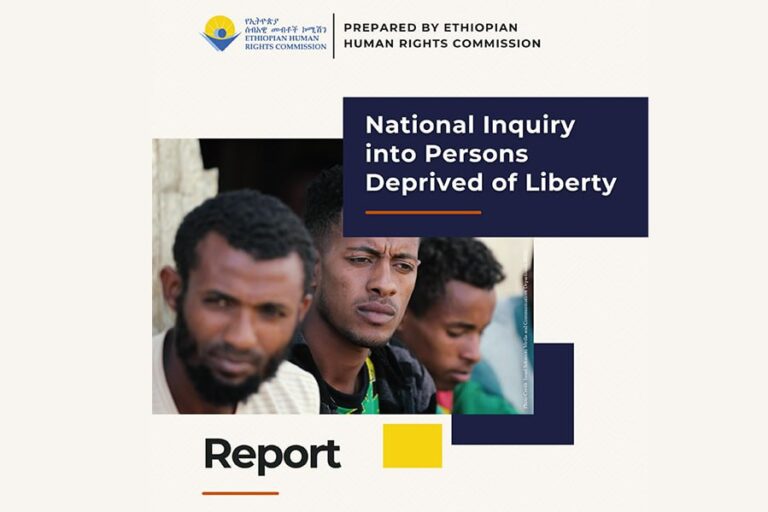In a report released on March 22, 2024, the Ethiopian Human Rights Commission unveiled the findings of the National Inquiry into persons deprived of liberty, shedding light on widespread human rights violations in the country. The inquiry, the first of its kind in Ethiopia, investigated the patterns of rights abuses associated with deprivation of liberty in four regions, namely Adama, Bahir Dar, Jigjiga, and Hawassa.
The National Inquiry, conducted through public hearings in the selected cities, aimed to raise awareness and draw attention to pressing human rights issues while identifying the underlying causes and patterns of violations related to deprivation of liberty. The report emphasized the significance of such inquiries in addressing systemic violations and educating stakeholders and the broader community.
During the public hearings, a total of 365 individuals participated, including victims, witnesses, government authorities from the criminal justice sector, civil society organizations, academia, and the general public. The diverse perspectives shared during these sessions provided critical insights into the challenges and experiences faced by those deprived of their liberty.
The report highlighted that the majority of violations occurred in specific contexts, such as conflicts, states of emergency, and inappropriate responses to popular demands, including those related to issues of self-administration. The recommendations put forth in the report aim to address these violations comprehensively and encompass a range of measures, including legislative, administrative, judicial, financial, and educational actions.
The Ethiopian government, both at the federal and regional levels, has been urged to take immediate and concerted action to implement the recommended reforms. The scale of these corrective measures necessitates the active involvement of diverse stakeholders, beyond the state, including civil society organizations, academia, media, and human rights workers.
The release of this report marks a critical juncture for Ethiopia as it confronts its human rights challenges head-on. The findings serve as a wake-up call, highlighting the urgent need for systematic reforms and a commitment to upholding the rights and dignity of all individuals in the country. It is hoped that the Ethiopian government, in collaboration with various stakeholders, will take swift action to address the violations outlined in the report and ensure a more just and rights-respecting society for all its citizens.



